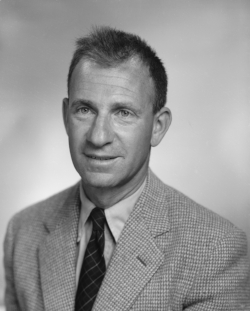A Quote by Rush Limbaugh
It was some UN agency that issued a report saying we're beyond the point of return here. And there was a picture of a polar bear on a little, tiny block of ice, which is a fraudulent - there are more polar bears than ever. The arctic ice caps are not melting. There's so much garbage out there.
Related Quotes
There's another totally fraudulent recipient of the Nobel Peace Prize. Al Gore hadn't done anything but make a movie that itself was filled with misrepresentations about the amount of ice the poor polar bears have to live on, doctored photos. He said in his acceptance speech in 2007, getting a Nobel Peace Prize, that the North Pole would be ice free by 2013. Today the truth is, there is a record amount of arctic ice for this time of year. He couldn't have been more wrong.
Listing the polar bear under the Endangered Species Act could harm bear conservation efforts by eliminating revenues from the carefully-regulated sport hunting of polar bears by Americans and the importation of polar bear meat and trophies into the U.S. As hunting by non-Americans would replace hunting by Americans, nothing would be accomplished in terms of reducing the number of polar bears killed, but the revenue currently generated by American sport hunters for conservation and research efforts would be eliminated.
It's Earth Day today. Let me tell you something about polar bears. They're endangered but you have to be careful because a polar bear is one of the few animals that will stalk a human. If you go to where polar bears live, it might stalk you and when you're on the plane going home, it might be behind you reading.
For humans, the Arctic is a harshly inhospitable place, but the conditions there are precisely what polar bears require to survive - and thrive. 'Harsh' to us is 'home' for them. Take away the ice and snow, increase the temperature by even a little, and the realm that makes their lives possible literally melts away.
The burning of fossil fuels has altered the amount of carbon dioxide in the atmosphere so rapidly and so abundantly that now, we are driving not just the warming trend, not just the sea level rise that is a consequence of the warming trend that is melting polar ice and alpine ice, but also [ocean acidification].































